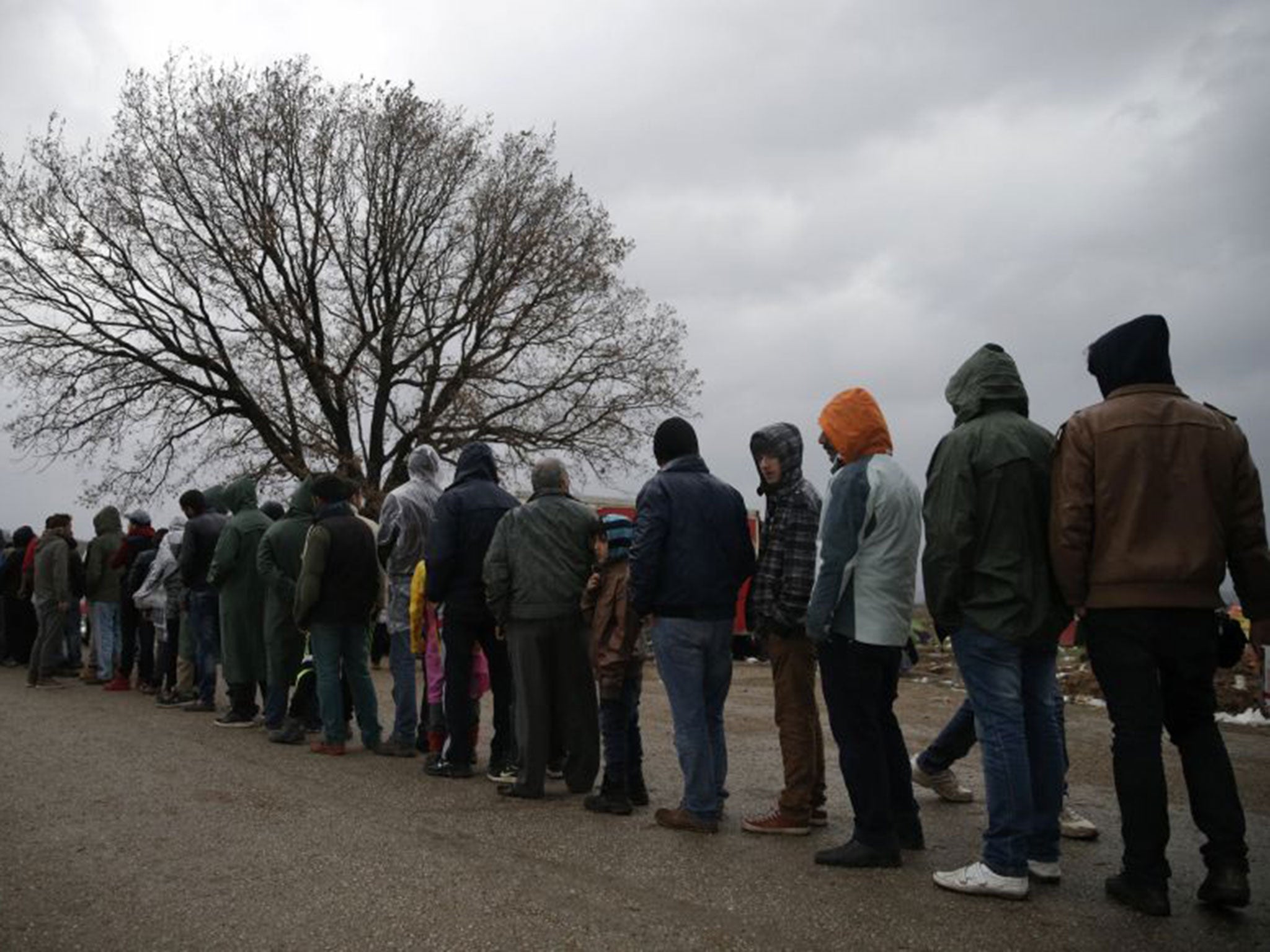Greece 'allowed' hundreds of thousands migrants to illegally cross borders into Europe to reduce labour costs
'Infrastructural weaknesses are... the product of years of neglect of migration management, which has facilitated migrants' exploitation in the labour market.

Previous Greek governments may have deliberately allowed hundreds of thousands of migrants to illegally cross the country's borders into Europe to provide a source of cheap workers, a London School of Economics professor has claimed.
Research by Dr Leonidas Cheliotis suggests previous regimes pursued policies over the past two decades that maintained a large migrant population.
Migrants are used to fill the country’s poorly paid menial jobs, without which Greece’s huge shadow economy would cease to function.
And the study says those without documents find themselves “trapped” in the country - where they provide a highly exploitable workforce as they are unable to obtain the papers which would allow them to move elsewhere.
According to the study there were 390,000 undocumented migrants in Greece in 2011, making up a third of the country's immigrant population.
Although the paper mainly focuses on Greece, Dr Cheliotis said: “The link between irregular status and labour exploitability has been observed in other EU countries as well.
“Both in the UK and France, for example, policies have restricted access to the formal labour market for asylum seekers, thereby commonly forcing them to fill low-paid niches in the shadow economy, where they are more vulnerable to exploitation.
“More generally, many European countries - including, for example, Sweden, Denmark and Norway - have introduced legislation according to which gaining a permanent residence permit requires participation in labour market integration programmes that may give employers excessive powers over employees.”
Despite this, he says: “There is plenty of evidence showing that migrants have made significant positive contributions to national economies around Europe.”
Although there has been much research into so-called ‘flexploitation’ – the exploitation of flexible workers, usually to their detriment – and the external causes of undocumented migrants, much less has been done on the role of recipient countries in maintaining this as a status quo.
Dr Cheliotis said: “The treatment accorded to refugees in Greece today can in some important respects be read as the culmination of long-standing attitudes, policies and practices against migrants in the country.
“Today’s infrastructural weaknesses are, at least to some extent, the product of years of neglect of migration management, which itself has built upon long-standing hostility towards migrants and facilitated their exploitation in the labour market.”
However, he added, not all migrants are necessarily treated badly in Greece.
“There are, to be sure, segments of the Greek public that have treated migrants with humanity and respect – attitudes also extended to refugees more recently," he said.
“And, in any case, responsibility for the ways in which immigrants are treated on Greek soil does not reside exclusively within Greece itself, not to mention that the case of Greece is not without parallels elsewhere in Europe.
“But these caveats should not obfuscate immigrants’ plight in the country, nor of course could they plausibly excuse it.”
He also said the behaviour of Greece had not gone unnoticed, and had “regularly been subject to criticism at the European and broader international levels, both by inspectorate bodies, NGOs and other activist groups, and by foreign politicians from various political parties, some of whom have themselves participated in inspection visits to the country".
Such criticisms, he said, have typically concerned Greece’s failure to facilitate processes of asylum, regularisation, deportation, or even voluntary repatriation for migrants without papers.
However, he said it had also commonly extended to practices of discriminatory policing against migrants, substandard conditions and excessively long periods of immigration detention in the country.
He said: “Greek state authorities have commonly responded to criticisms with denial: from rationalising the type of treatment immigrants experience in Greece by emphasising the criminal and other dangers their presence allegedly creates, to explaining away failure to address the problem by reference to the exceptionally large number of irregular migrants in Greece and a lack of financial resources, to undermining the extent of the problem or even denying the very possibility that racist attitudes can manifest themselves amongst Greek people.”
However, he continued: “There has been a shift away from anti-migrant rhetoric in official discourse since the Syriza-led coalition government assumed power in 2015, against the backdrop of the refugee crisis that was already mounting at the time. It is too early to judge whether, notwithstanding the growth in migrant numbers and financial pressures, official practices have changed.
Europe is currently facing its biggest refugee crisis since the Second World War, and Greece remains at the centre of the debate as it continued to struggle to control its borders.
Join our commenting forum
Join thought-provoking conversations, follow other Independent readers and see their replies
Comments
Bookmark popover
Removed from bookmarks